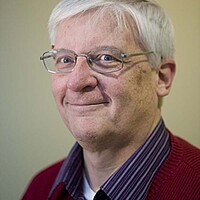Good Reads: From the strength of one girl, to an FBI sting, to 'old fogey' Scalia
Loading...
Oct. 9 marked the first anniversary of the shooting of Pakistani schoolgirl Malala Yousafzai by Taliban extremists while she was sitting in her school bus. But instead of silencing her, the unsuccessful attack has made Malala a world-renowned spokeswoman for education, especially for girls and women. Recovered from her wound, she’s back in school in Birmingham, England.
“The voice of the girl whom the Taliban tried to silence a year ago has been amplified beyond what anyone could have thought possible,” writes Mishal Husain for BBC News Magazine.
“When I ask her what she thinks the militants achieved that day, she smiles. ‘I think they may be regretting that they shot Malala,’ she says. ‘Now she is heard in every corner of the world.’”
A real ‘Breaking Bad’ story
Ross William Ulbricht ran a stealthy website called Silk Road that trafficked in drugs and anything else people wanted to buy without the prying eyes of governments. He was so successful that he may have taken in $80 million in the 30 months the site was active.
But US federal agents finally caught up with Mr. Ulbricht while he was tapping away on his laptop at a library in San Francisco. How they managed to find him is the story told by Nate Anderson and Cyrus Farivar on the tech website Ars Technica.
Apparently, the writers say, Ulbricht felt his illegal operation was really a beacon of “freedom over tyranny,” not a criminal enterprise. The FBI disagreed.
“Ulbricht was actually making sloppy mistakes from the start,” write Mr. Anderson and Mr. Farivar. “And it didn’t take technical back doors to find him; it just took a lot of solid detective work, some subpoenas, and a search engine.”
Assad explains presidential ‘mistakes’
Germany’s Der Spiegel magazine offers an in-depth interview with Syrian President Bashar al-Assad. In an article by Dieter Bednarz and Klaus Brinkbäumer, Mr. Assad professes his love for his country and his willingness to consider stepping down from office next year (“If I no longer know that I have the will of the people behind me, then I will not run,” he says.)
The interviewers get him to admit, obliquely at least, to shortcomings. “There were personal mistakes made by individuals. We all make mistakes,” Assad says. “Even a president makes mistakes. But even if there were mistakes in the implementation, our decisions were still fundamentally the right ones.”
Pressed on the biggest question, he remains defiant. “We did not use chemical weapons” on unarmed civilians, including children, he says. “This is a misstatement.”
Keeper of the conservative flame
Love him or loathe him, Supreme Court Justice Antonin Scalia is a continuing font of controversial opinions – “either a demigod on stilts or a menace to democracy, depending on which side of the aisle” the observer sits, writes Jennifer Senior prefacing her interview with Justice Scalia in New York magazine.
“Scalia is perhaps more responsible than any American alive for the mainstreaming of conservative ideas” about the law, she says.
But he doesn’t seem to mind drawing fire for his views. “I am something of a contrarian, I suppose. I feel less comfortable when everybody agrees with me,” he tells Ms. Senior. “I probably believe that the worst opinions in my court have been unanimous. Because there’s nobody on the other side pointing out all the flaws.”
The piece is laced with intriguing tidbits. Scalia gets most of his news, he says, not from newspapers or newscasts but from talk radio commentators. And he’s upset by the profanity he hears in movies and on TV.
Fifty years from now, Scalia may be known as “an old fogey” who was “on the losing side of everything,” he says. “And I don’t care.”
I’m sorry for your time, please read this
When in doubt, apologize. Even if it’s not your fault. If you do, people will trust you.
That’s the conclusion of a study reported by Tom Jacobs in the Pacific Standard. “In our minds, anyone who takes note of our misfortune, and expresses dismay over it, is impressively empathetic and thus worthy of our confidence,” writes Mr. Jacobs in explaining the research, which included an experiment in which people at a train station on a rainy day were asked if they would lend their cellphone to a stranger to make a call. If the stranger first said he was “so sorry about the rain!” the cellphone owner was much more likely to lend his phone – even though the rain was no one’s fault.
“By issuing a superfluous apology,” the researchers are quoted as saying, “the apologizer communicates that he has taken the victim’s perspective,
acknowledge[s] adversity, and expresses regret” – which increases the level of trust.
(If this column has displeased you, I apologize.)








